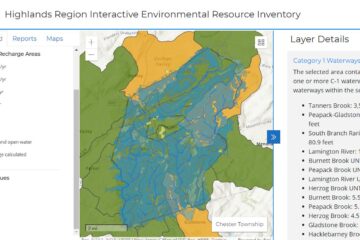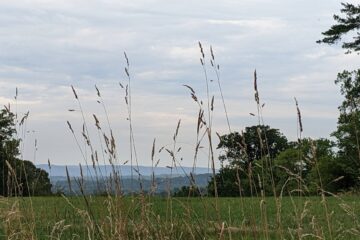Raritan Headwaters Association is an Accredited Land Trust. We are honored to have been accredited by the Land Trust Accreditation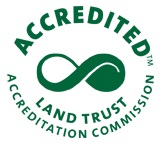 Commission for demonstrating that we meet national quality standards for protecting important natural lands. Learn more here about Accreditation.
Commission for demonstrating that we meet national quality standards for protecting important natural lands. Learn more here about Accreditation.
Over five decades we have worked to preserve land that protects important water resources. RHA owns 9 wildlife preserves, holds 33 conservation easements and, in partnership with others, preserved nearly 7,000 acres of critical watershed lands.
Benefits of Land Preservation
Preservation of land is critically important to the protection and improvement of water quality, wildlife habitats, natural landscapes, and the wellbeing of all those living, working and playing in the watershed region.
- Protecting source water and drinking water supplies
- Reducing water and air pollution
- Sequestering carbon and reducing greenhouse gases
- Preserving biodiversity, fish and wildlife habitats, and endangered species
- Preserving open and green spaces for recreation
- Managing and protecting watersheds and wetlands
- Maintaining scenic landscapes
- Preventing soil erosion and improving soil quality
- Reducing the negative impacts of flooding
- Improving resilience to drought
- Preserving working farms
- Limiting land and habitat fragmentation
- Economic benefits
Land Preservation Community Highlight: Readington Township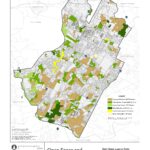
Readington Township has been actively preserving land to secure these benefits for the community for over 45 years. Since 1977, Readington’s Open Space and Farmland Preservation Program has successfully preserved approximately 30% of the township’s 30,000-acre land mass. This includes 4,500 acres of open space and nearly 5,000 acres of preserved farmland. Click here to read more about the history of land preservation in Readington.
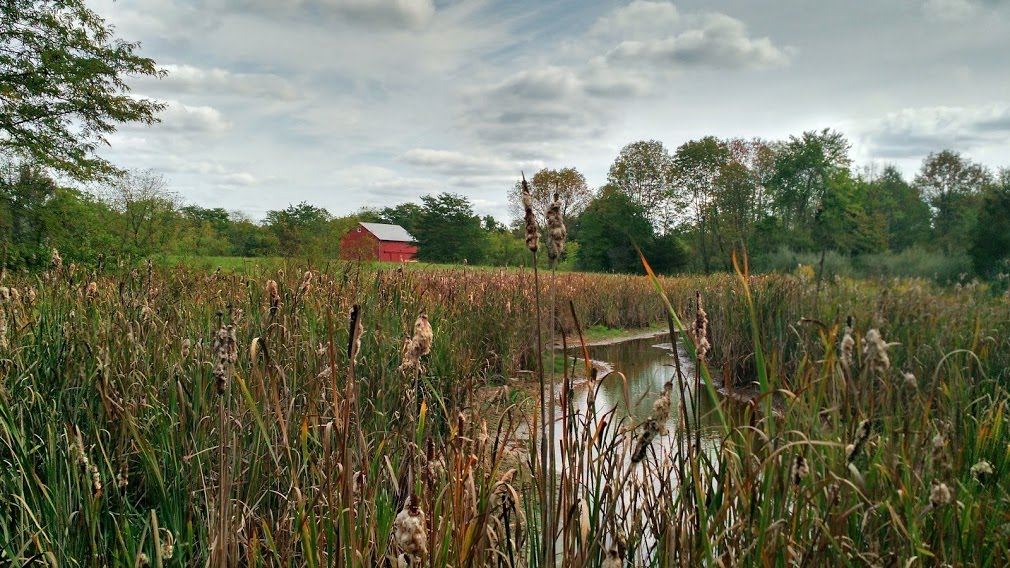
Cushetunk Mountain Nature Preserve Image Source: www.readingtontownship.org
Preservation Tools
Land preservation and conservation practices are directly tied to clean drinking water, healthy food, clean air, and protection from natural disasters, such as floods and drought. Our protected forests fight climate change by absorbing carbon. There are a number of tools and resources for preserving land and protecting these important ecosystem services. We urge landowners to work with their tax and legal advisors to explore land preservation options tailored to their needs.
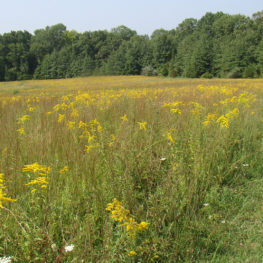
Conservation Easement
A conservation easement is a legal agreement between a landowner and an eligible organization (such as a municipality or a non-profit land trust) that restricts future development and activities on the land in order to protect its conservation values. Easements can be in place for a specified period of time or perpetual and will become part of the property deed. If the easement meets federal tax code requirements, the owner may consider the donation of an easement a tax-deductible charitable contribution. Conservation Easements don’t necessarily require public access.
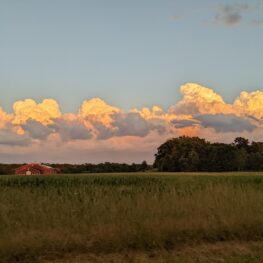 Farmland Preservation
Farmland Preservation
Through New Jersey’s Farmland Preservation Program landowners can sell their development rights and the land will forever be protected for agricultural use. There are valuable incentives for landowners to participate in the program, including helping them meet financial goals, providing capital to expand existing operations; eliminate or reduce debt load; or further estate or retirement planning. Deed restrictions run with the land, so future owners of the preserved farm would also be required to comply with the deed restrictions. The State Agriculture Development Committee, local and county governments, and the federal Farm and Ranch Land Protection Program often partner in these projects.
Land Purchases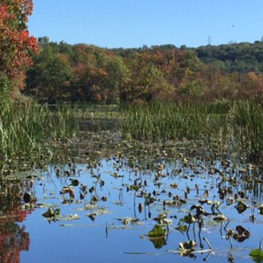
When a landowner wishes to sell a parcel outright, and the land meets local preservation goals, preservation partners will work together to leverage funds for purchase. Purchase offers are made on the basis of appraisals that establish the fair market value of the land and the partner’s ability to raise money for the purchase. A bargain sale is another option that may generate tax advantages, or estate tax reductions for the landowner.
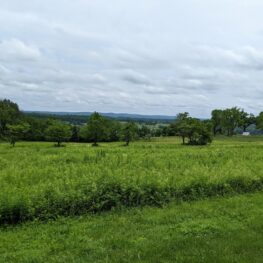 Donating Land
Donating Land
Landowners may choose to donate their property as a personal legacy or through an estate, to ensure that their land remains forever as open space and enjoyed by future generations. Land Trusts and other conservation non-profits accept donations of land that advance conservation goals. Landowners can work with a non-profit land trust to identify the best arrangement for donating all or a portion of their land which may be kept by the land trust as a permanent preserve or transferred to a suitable owner, such as a municipality or county. Landowners who donate property may qualify for substantial tax benefits.
Preserving land is fundamental to protecting water quality. Forests, meadows and wetlands filter toxins from entering our surface and groundwater supplies.
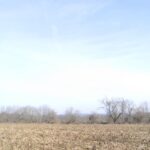
This series of talks will provide us with valuable insights into how land preservation initiatives have been successfully implemented in the past. It will also shed light on current initiatives and the people who are working hard to conserve treasured natural areas, unique places, special recreational resources, and important historic sites.
Resources:
Land Preservation Partners Working Together to Preserve Water Resources
Land preservation partners give citizens the knowledge and support they need to protect community resources that come from the land – water, food security, wildlife, and places for recreation and reflection.
Raritan Headwaters Association www.raritanheadwaters.org/land-preservation-stewardship-2/
NJ Conservation Foundation www.njconservation.org/
Green Acres Program, NJ Department of Environmental Protection www.nj.gov/dep/greenacres/
State Agriculture Development Committee (SADC) www.nj.gov/agriculture/sadc/farmpreserve/#4
Hunterdon Land Trust www.hunterdonlandtrust.org/
Tewksbury Land Trust www.tewksburylandtrust.org/
Land Trust Alliance www.landtrustalliance.org/
County Open Space Programs:
Hunterdon County Open Space, Recreation, Farmland and Historic Preservation Trust Fund www.co.hunterdon.nj.us/openspac.htm
Somerset County Open Space Program www.somersetcountyparks.org/parksfacilities/openSpace/openSpace.html
Morris County Preservation Trust Fund www.morriscountynj.gov/Departments/Open-Space-Preservation
Municipal Open Space Programs (local Open Space Committee details and Recreation and Open Space Inventory (ROSI) data are available through individual municipal websites)
Conservation Partners Working Together to Ensure Sustainable Land Use
Natural Resource Conservation Service www.nrcs.usda.gov/wps/portal/nrcs/site/nj/home/
North Jersey Resource Conservation and Development www.northjerseyrcd.org/
NJ Soil Conservation Districts www.nj.gov/agriculture/divisions/anr/nrc/conservdistricts.html
Additional Resources
Caring for the water by caring for the land
Source Protection Handbook, Using Land Conservation to Protect Drinking Water Supplies (American Water Works Association)
Recreation and Open Space Inventory (ROSI) https://dep.nj.gov/otpla/rosi/
Join the Raritan Headwater Kestrel Partnership
BMPs for Farms and Fields
Stories in Land Preservation – Episode 1





 Farmland Preservation
Farmland Preservation
 Donating Land
Donating Land

